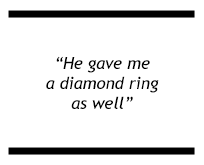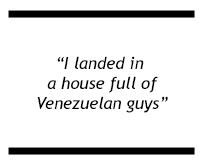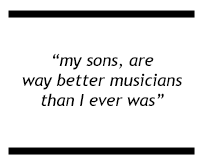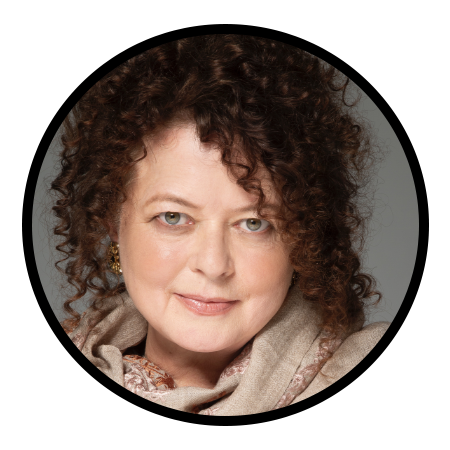
Salli Terri/Laurindo Almeida/Martin Rudeman - Duets with the Spanish Guitar
This was an early classical crossover album, given to me by a fellow guitarist. He gave me a diamond ring as well, but I was only fifteen, so that was never going to work out. I’d been learning the guitar for several years by then, and had travelled by plane from Perth to Sydney – my first big solo trip – for a week-long ‘masterclass’ from the teacher who would eventually lure me to London a year later. Those were exciting times: I had just taken possession of a beautiful new guitar made for me in cedar, rosewood and ebony by renowned Paris luthier Daniel Friederich (mine was no. 400; I’d waited two years for it), and the five preludes by Brazilian composer Heitor Villa-Lobos were a staple of my repertoire. Duets with the Spanish Guitar won Best Classical Engineered Recording at the first ever Grammy Awards and Villa-Lobos is said to have regarded Terri’s ecstatic rendition of the ‘Bachianas Brasileiras No. 5’ as the finest recorded performance of the work. I loved the guitar settings, perhaps my first introduction to those sinuous Latin rhythms, but it was Terri’s voice that pierced my soul. And with every other track featuring flute music by the likes of Ibert, Fauré and Ravel, the album was quite simply pure romance.
Minnie Riperton - Perfect Angel
Another album I got in my teens; another extraordinary voice – soprano to Terri’s contralto. And in this case, a tragically early death. Perfect Angel was co-produced by Stevie Wonder, and was a slow burn until the release of its fourth single, Lovin’ You. There was something hypnotically fascinating about that high register, so unearthly yet so full of yearning. ‘Lovin’ You’ arose out of an improvised lullaby that Riperton would sing to her baby daughter Maya in order to have time with her husband, and the genius of it is the way it transitions between – and melds – various shades of love: innocence and experience, desire and devotion. With the limpid accompaniment of Wonder on electric piano and synthesisers and the sampled bird song, it somehow captured an idyllic moment that seemed unbreakable, as though love really was easy, and we really would live each colour-drenched day in perfect springtime. It was a mix and mood effortlessly conveyed by the cover image of Minnie naked in her denim dungarees, ice-cream dribbling down her wrist from a cone, and followed through in a collection of great tracks: from Perfect Angel and Every Time He Comes Around to On the Edge of a Dream, written in memory of Martin Luther King and in hope of things that might be, ‘that if we look we just might see’ and ‘love enough for each and every one’. But for this playlist I’m choosing a song with a mellow, more retrospective feel …
Buena Vista Social Club - Buena Vista Social
What a moment this was! When an eclectic group of Cuban musicians with music in their bones, including guitarist Eliades Ochoa, pianist Rubén González and charismatic singers Ibrahim Ferrer (signature flat cap) and Compay Segundo (Panama), were brought together by American guitarist Ry Cooder to form a supergroup named for a traditional danzón that was named in turn for a venue in Havana. Compay Segundo was a natural storyteller, and I’d fallen for him hard when I heard him recall how, aged five, he used to light cigars for his grandma, and how his grandma lived to be 115, and how he himself had been smoking for 87 years and no, it didn’t affect his voice and damned if he was going to stop now. Life was too short.
By this time I was deeply immersed in Latin American music. When I first moved to London from West Australia, I landed in a house full of Venezuelan guys on oil scholarships, all of whom were aspiring professional guitarists like me. I was quickly recruited into a touring folk group singing songs about arepas and el caimán, learned Spanish through deep immersion and went on to take a degree at Cambridge (where for a term or two I masqueraded as a Venezuelan) before passing on my enthusiasm for both language and culture in various educational settings. I especially love Ibrahim Ferrer’s duet Silencio with Omara Portuondo, recorded for the Wim Wenders soundtrack when the two singers were 72 and 69 respectively (mere striplings compared to Compay at 91) and singing with a focused intensity all the more tender for lived experience – that’s the one I sing around the house, with whichever son happens to be handy adding the harmony. But for a more balanced playlist I’ve chosen Compay’s four-chord son, ‘Chan Chan’, with which the band is most associated.

Manu Chao - Próxima Estación - Esperanza
I first discovered Manu Chao when I was teaching, and I especially like both this and the previous album (his first), Clandestino. His songs livened up many a lesson, not least due to his radical left-wing politics and the whiff of the illegal about his itinerant, alternative lifestyle. But he was an exemplary case, from my point of view: the child of a Basque mother and a Galician father who fled Spain for France to escape the Franco dictatorship, grew up in Bohemian Paris and was heavily influenced by the Seventies UK rock scene; more thrillingly still, he sang in a mix of French, Spanish, English, Arabic and Portuguese, often segueing from one to another mid song – there, let this man be your example, I would declare, throwing down the gauntlet to the budding linguists in my charge. What’s more, the melodies were simple and the lyrics clear, making them relatively easy for English-speakers to capture, and we all revelled in the way he looped and layered street sounds and radio and television clips over his tunes, creating an immediacy and vibrancy that made you feel you were present at the scene. Best of all was Me Gustas Tú, which by running against our customary use of the verb ‘to please/like’ in class provided the perfect context for reinforcing the rules. ‘Me gusta la gramática, me gustas tú’ (‘I like grammar, I like you’). What could be finer than teaching verb agreement through song? ¡Perfecto!
Nina Simone - Live at Montreux
This live recording is very special to me. It was given to me by the younger of my two sons, in, I think, an act of deep empathy. As though he were letting me go free, rather than the other way round. How much wiser they are than I … The emotion is raw, the sadness runs deep, and the vulnerability is off the scale, but you can’t take your eyes or ears off Simone and her love-hate relationship with her Swiss audience – it’s as gripping as any hard boiled thriller. Playing the piano comes as naturally as breathing and she riffs on the melody – that ascending glissando on ‘young’! – and shifts from sung to spoken word without a trace of inhibition. Of course my first choice would be all-time great I Wish I Knew How It Would Feel to Be Free (‘because if we ain’t we’re murderous’), which she attacks with gleeful gusto, building to a defiant climax proclaiming that she already knows how it feels ‘not to be chained to anything, to any race, to any faith, to anybody, to any creed, to any hopes, to any anything’. But I also want to smuggle in another favourite artist, Janis Ian, who I once saw play live in London. Simone covers the song ‘Stars’ with heartbreaking authenticity, straying from the script to denounce both Switzerland and the US but also give a shout-out to Janises Ian and Joplin as well as Billie Holliday. She sings as though telling her own story, intimately, playing on the improvisatory quality of the original, as though living every word. Like she says … ‘the spirit’s moving now’. I defy you to listen/watch and not weep.
Daniel Lanois - Black Dub
This album – a mix of dub, blues, soul and rock – was recommended by a dear friend a few years after it was released, and I could happily pick almost any track. It’s a source of frustration that this line-up never did a follow-up, but the upside is I’ve become a big Daniel Lanois fan. Canadian multi-instrumentalist and singer-songwriter Lanois has produced albums for Bob Dylan, Neil Young, Peter Gabriel, Emmylou Harris, Willie Nelson and Brandon Flowers as well as U2: he’s the real deal. For Black Dub he’s joined by contralto Trixie Whiteley with Daryl Johnson on bass and Brian Blade on drums, each one a master of their craft. Nomad could be the soundtrack to The Reacher Guy, my biography of Lee Child (‘Got to know the price of the path I chose/The way the nomad knows’); I also love the lilting I Believe in You (‘All I need is you and a castle/All made of hope’) and the easy riding Silverado (‘Black ice was everywhere/At every corner but we didn’t care’). But truth is there was no way I was going to resist the sheer passion of Surely and the prophetic poetry of ‘You command my hand to write/In the dark hours of deep midnight’. In 2017 I caught Lanois at Camden’s Koko, on tour for 2016’s Goodbye to Language, the polar opposite to Black Dub perhaps, but equally mesmerising – he’s nothing if not versatile.
Virginia Astley - Had I The Heavens
Virginia Astley was a serendipitous discovery via Twitter. The first album I sought out (for its title alone) was her 1983 debut From Gardens Where We Feel Secure, a meditative sequence of tone poems evoking the gradual evolution of a single summer’s day, with Astley improvising on the piano over ambient sounds – creaking gates, flowing water, church bells, bird song – and subtle woodwinds. It’s as good as a day out in the country. Then I managed to get hold of the W. B. Yeats-inspired Had I The Heavens (also via Japan, where she had signed with Nippon Columbia), another concept album but this time featuring Astley’s ethereal voice, which itself seems to issue directly from nature along with the wind and the tree spirits. There’s a pared back simplicity to her melancholy songs, delivered with minimal inflection but nonetheless serenely moving. The album is perfectly constructed and best enjoyed as a seamless whole but along with It’s All Over Now and A Long Long Year, which top and tail it, I would pick out Broken and, for my playlist, the exquisite Nothing Is As It Seems. One of these days I’ll have to check out her brief dalliance with my all-time favourite writer Jorge Luis Borges on the earlier EP A Bao A Qu (alluding to his Book of Imaginary Beings).

Lunch Money Life - Immersion Chamber
Full disclosure: my sons, Spencer and Jack, are way better musicians than I ever was. And despite my fine guitar they had a better start too, with a solid grounding in the choir of Great St Mary’s, Cambridge. This is their first full-length album as part of five-piece ‘nu-jazz outliers’ Lunch Money Life, miraculously released against all odds during the 2020 lockdown, but as with my book not to a live audience. The Quietus described it as ‘atmospheric and apocalyptic’, with ‘muddy, dizzying drum machines, wistful guitars and brass sounds that punch through the miasma’, industrial electronics working in direct contrast to the trombone and saxophone. What I love about my chosen track, apart from the sheer explosive energy, is the density and texture: to listen is to be drawn deep into a multidimensional space, like a cross between a rain forest and a cathedral. There are definitely things going on in the sky. Their latest EP, Tarmac the Lake – ‘the perfect blend of chaos and intensity’ (Clash magazine) – was launched in September. I’m biased, but the capacity crowd in Dalston seemed to like it. Watch this space …
Bio
Heather Martin is a lapsed guitarist, a linguist and literary critic, and the authorised biographer of legendary thriller writer Lee Child. She writes regularly for CrimeReads and her short story ‘Goodbye, Wendy’ will appear in Everyday Kindness edited by L. J. Ross and released on November 13 by Dark Skies Publishing. She lives in London and tweets @drheathermartin.
The Reacher Guy was published in 2020 by Little, Brown UK and Pegasus Books (US) to critical acclaim from The Times, The Telegraph, The Irish Times and The Sydney Morning Herald, and is due out in paperback on October 21. Ian Rankin writes: ‘Here is a biography as gripping as one of Lee Child’s own bestsellers. Heather Martin digs deep to uncover nugget after nugget. Trust me, this is gold.’



